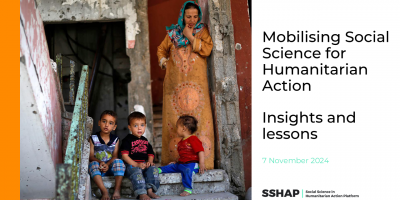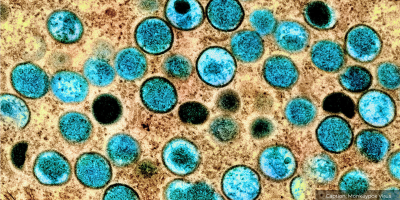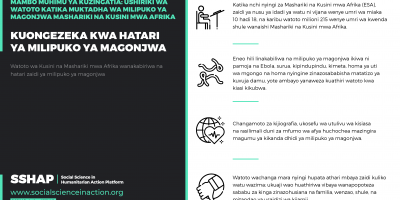Blogs, news & events
137 stories
blog
Learn why setting up multiple channels, presenting in different fora and adapting to decision makers’ schedules is key in this fourth in a five-part blog series. The series offers social scientists tips to better connect with humanitarian responders and planners in advocating for evidence-informed emergency response.
blog
Find out why you should know your audience – their name, their organisation, their sector (and its jargon) – in this third in a five-part blog series. The series offers social scientists tips to better connect with humanitarian responders and planners in advocating for evidence-informed emergency response.

blog
The spread of the current mpox outbreak in the Democratic Republic of Congo has increased both the suffering of communities and the scale of the challenge facing humanitarian actors and authorities. In such circumstances, how can an effective response to mpox, including through vaccination, be achieved?
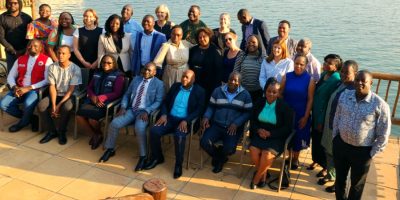
blog
Risk Communication and Community Engagement (RCCE) is a critical component of cholera outbreak response. Sharing insights, strategies, and best practices for RCCE from national and regional efforts to combat cholera can enable actors to co-create solutions to common challenges and help pave the way towards stronger and more empowered communities.
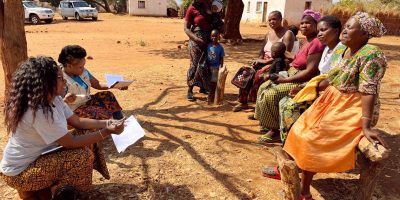
blog
Equipping people working in community engagement and communications during humanitarian crises with the knowledge to use social science research can enable them to generate robust, rigorous and context-relevant socio-behavioural evidence to inform interventions and policymaking. Ginger Johnson highlights the important work of Collective Service partners to support governmental and non-governmental…
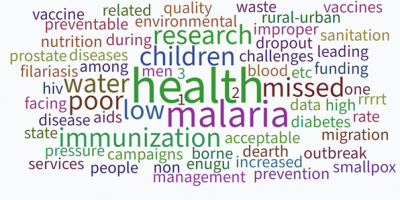
blog
The Social Science in Humanitarian Action Platform (SSHAP) supported the Enugu State Primary Health Care Development Agency and the Enugu State Ministry of Health to strengthen their qualitative research capacity to improve preparedness for disease outbreak. This blog shares learning from the process.



